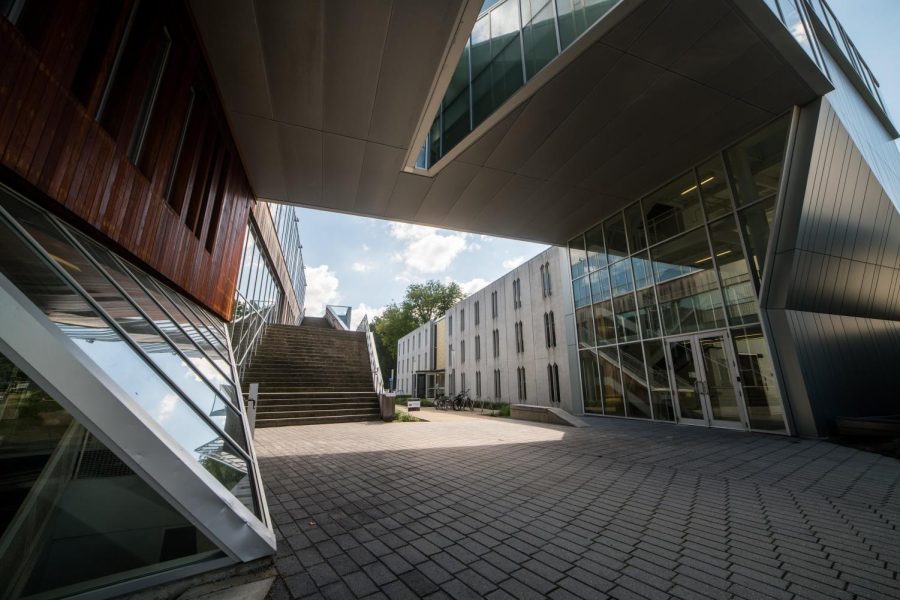Chinese Students Remain on Campus Amid Covid Restrictions
Breezeway Between Kohl Building and Robertson Building
Since the beginning of the pandemic, China’s strict COVID-19 policies have been recognized for their lengthy quarantine times, lockdowns, restrictions, and tightly protected travel policies.
Color-coded QR codes are scanned to track positive cases in every public space, and the government continues to routinely lockdown cities. This is all part of China’s zero-COVID policy, which, although proven to be effective at controlling the spread of disease, makes international travel difficult.
A flight to China is expensive, with some tickets running into the thousands of dollars. Additionally, the flights themselves must be direct so as not to risk possible contamination during layovers. Masking is strongly encouraged at all times, so eating is difficult, and upon arrival, travelers take buses, trains, and boats to arrive at government-mandated quarantine facilities for an additional minimum of 14 days. Travelers are expected to pay these fees out-of- pocket. Thus, despite not having been home for months or years, many Chinese Conservatory students opted to remain in Oberlin over the summer. One such student is Conservatory second-year Allison Du.
“I would say the biggest reason not to go home is financial,” Du said. “You might have to pay someone to help you get the ticket. Then there is also the time it takes to quarantine and all of that. So by the time you’re done, it’s already a month out of your vacation. At home, it’s just my mom. I really miss home, but she’s afraid of the relationship between China and the U.S., like if the protocol changes [and] I might not be able to get back here.”
This situation is familiar for many Chinese students in the Conservatory. Zihua Ma, a third-year violinist, recounts the ways that Chinese international students have stayed close through it all, playing online card games and eating meals together.
“I actually have not heard of any Chinese students that went home,” Ma said. “I would say there were about 20 of us total.”
Another big reason to stay in Oberlin is free practice time. While the rooms of Robertson Hall are filled with the sounds of students practicing during the school year, summer is a time of quiet. Additionally, there are no pianos in China’s quarantine facilities. This quiet really helped Jiaming Li, a fourth-year Conservatory pianist.
“I think staying here still has benefits,” Li said. “It has made me focus more on playing piano, so it actually is a good thing for me.”
Du echoed a similar sentiment.
“I can still study with my teacher and practice in whatever practice room I want, even in the concert halls,” she said.
Recently, a much faster route through Hong Kong has made it easier for Chinese students to travel home in a timely manner. However, this news didn’t come until the end of August, too late for any such summer travel to be possible.
“So many of us are sad and mad,” Ma said. “There is a solution there, but you can do nothing. … We believe in our country so much but we feel like we are not accepted there. That’s so hard, and on top of that, this is the first time many of us are living alone. Many of my friends miss home so much they cry a lot. They haven’t been home in months and months and are having to figure so much out by themselves in a language they aren’t as familiar with.”
Despite all of this, Ma and Du both remain excited for the start of the new school year. Ma in particular looks forward to continuing to enjoy the new experiences this unique situation brings.
“I learned how to set up furniture recently,” she said. “Growing up in China, I spent so much of my time studying and practicing that I feel like now I can finally spend time with my friends and have fun. Even though we really miss our families, we’re still growing up and learning new things.”




